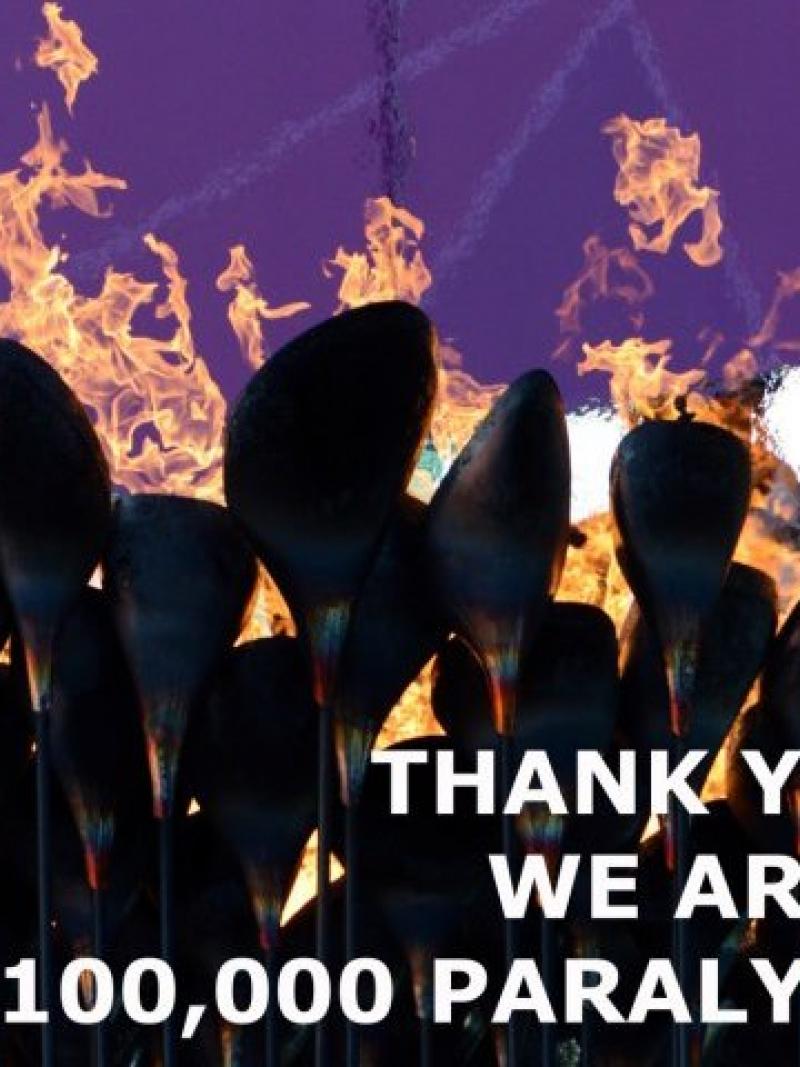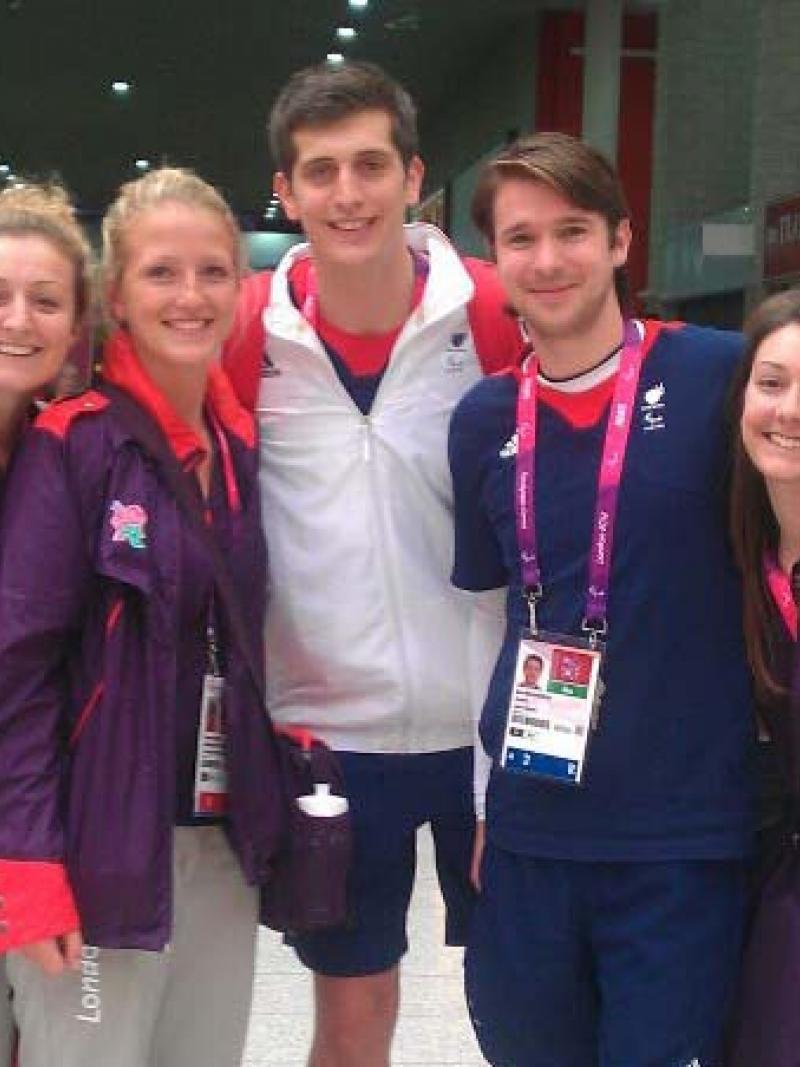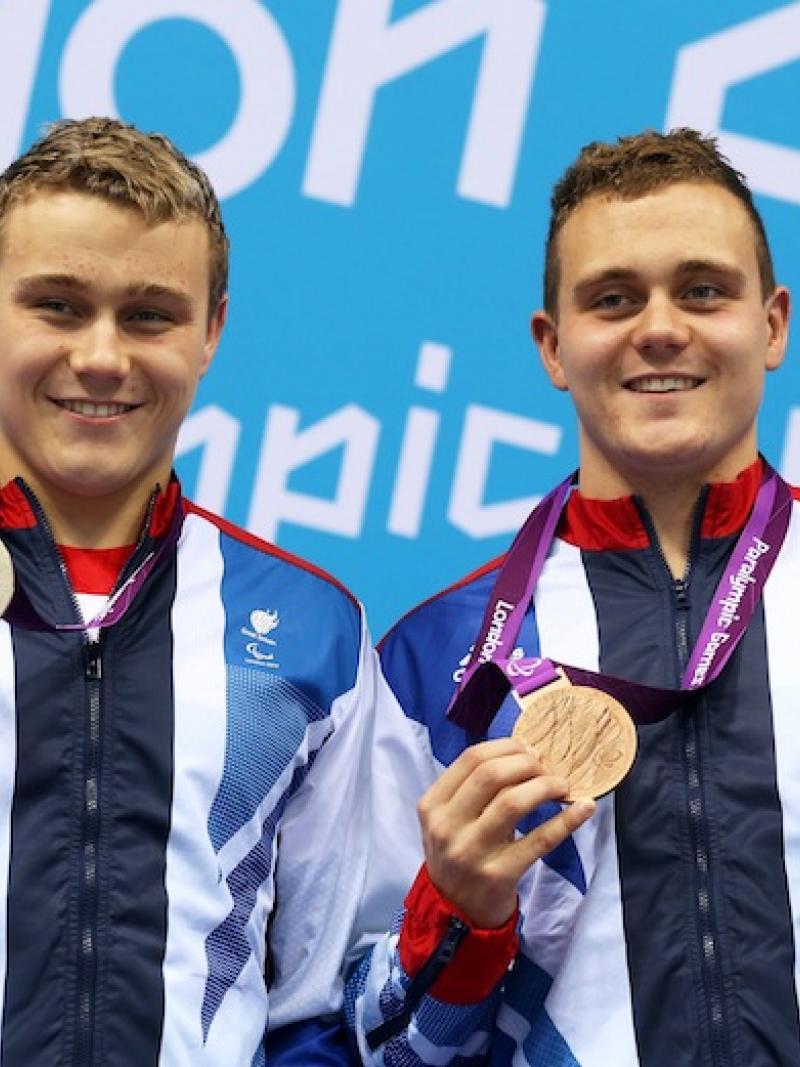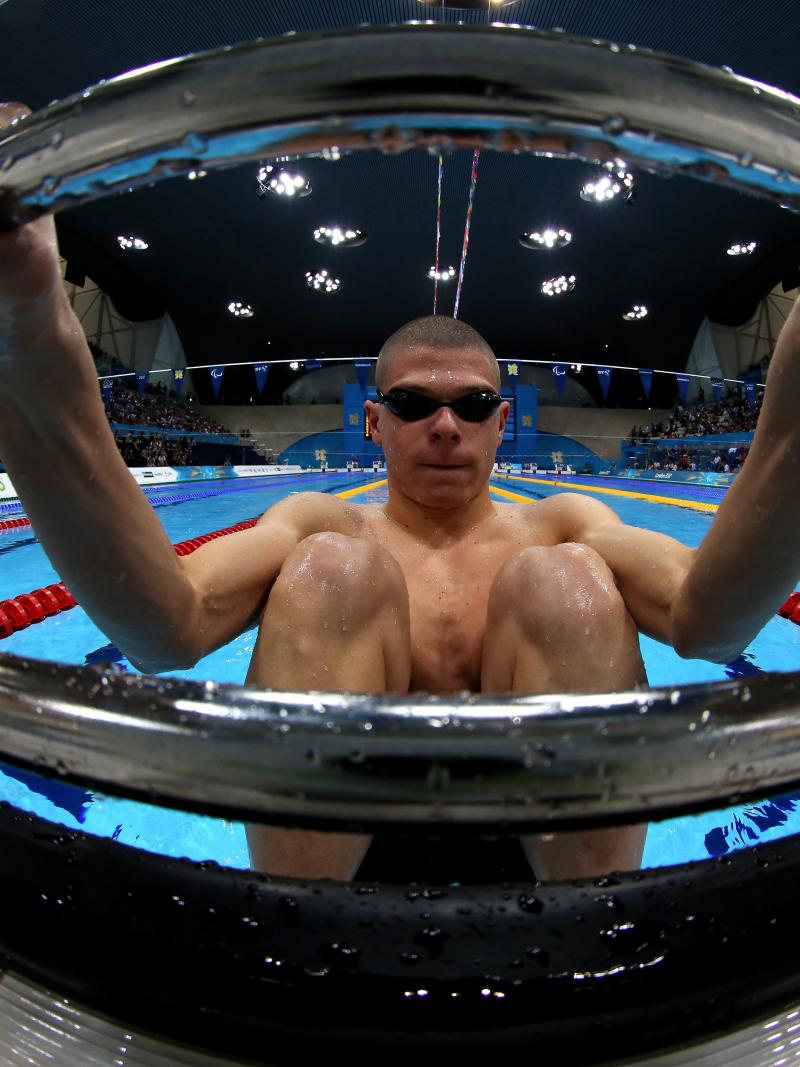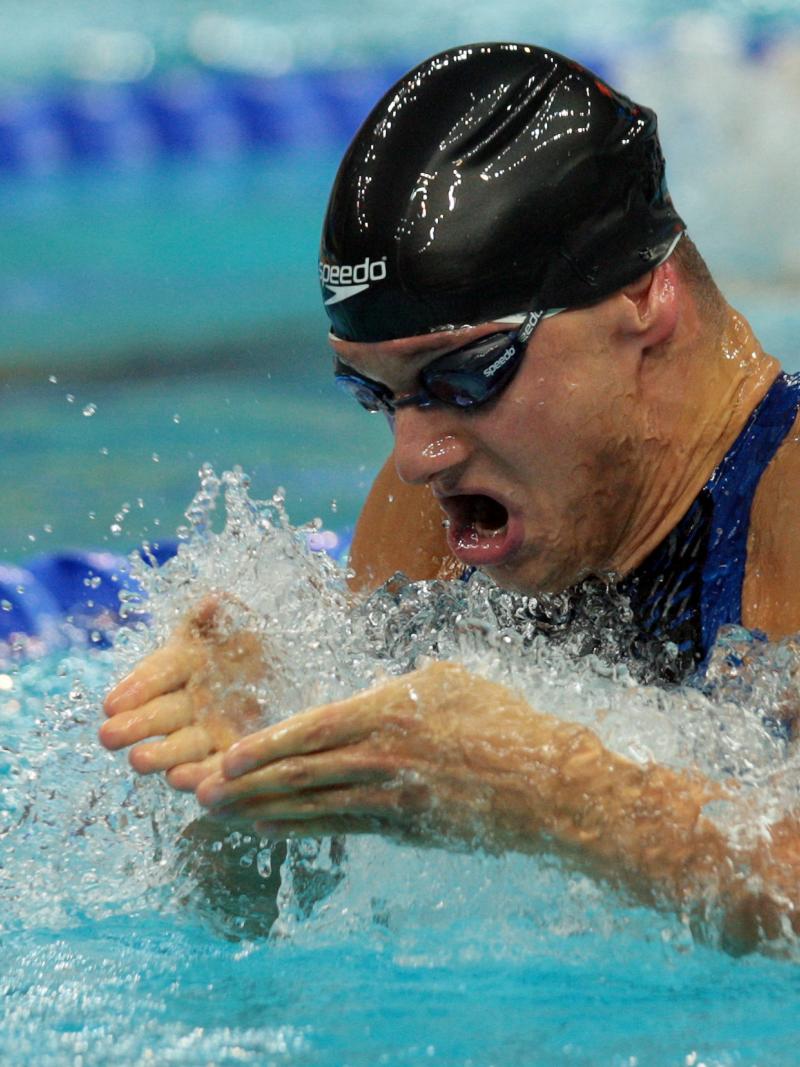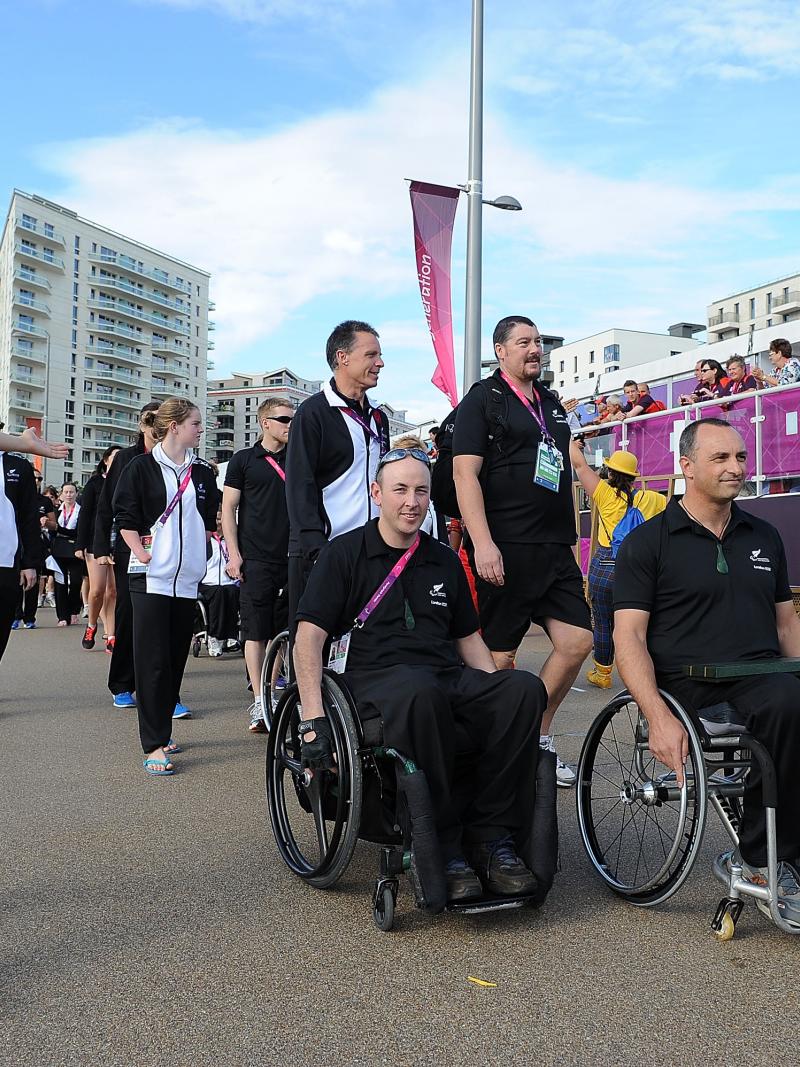Nick Parr: Intellectually disabled athletes will benefit from 2012
One year on, the Executive Director of Inas (International Sports Federation for Persons with Intellectual Disability), talks about the early legacy and momentum of including these athletes in London 2012. 05 Sep 2013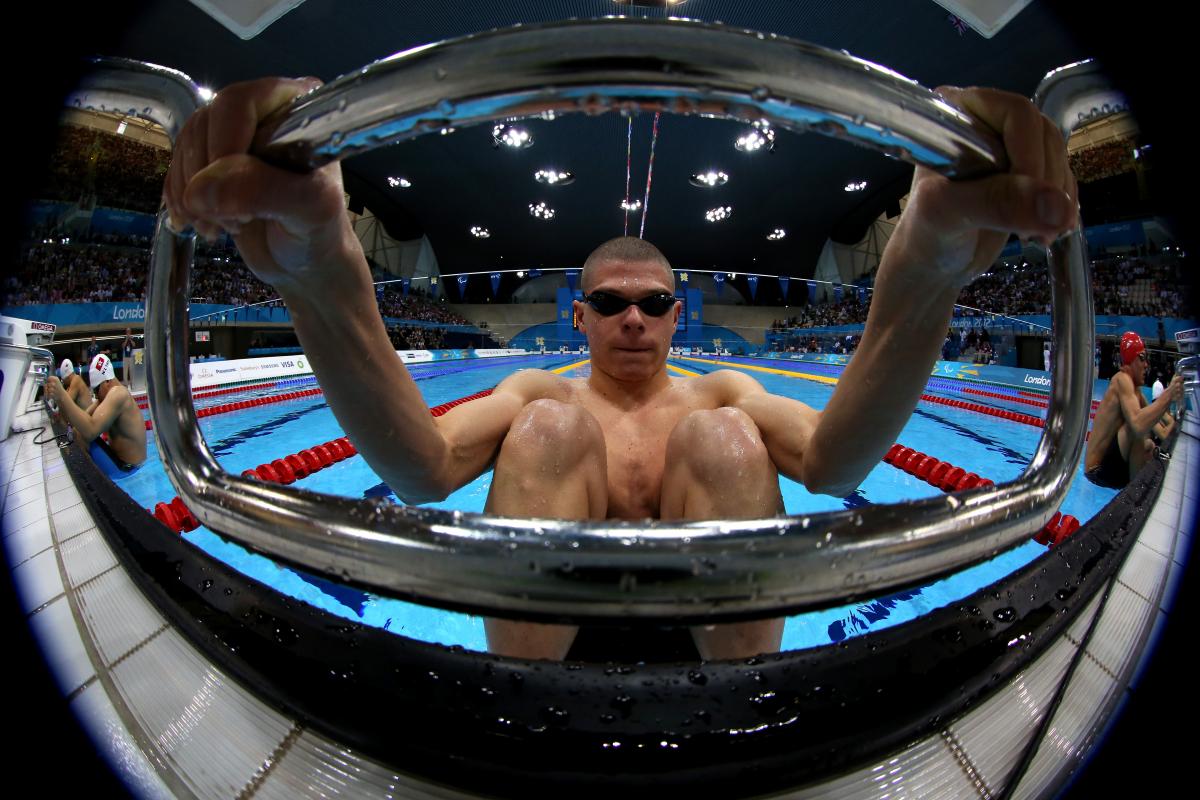
The Netherlands' Marc Evers prepares for the start of the men's 100m backstorke S14 heats at the London 2012 Paralympic Games.
London 2012 was an undoubted success, and its influence on sport for athletes with an intellectual disability is assured - albeit recognising that this was the start of a long journey that it will take many years to complete.
So much has been written about the success of the 2012 Paralympic Games in London that it is sometimes hard to find new words to convey what it meant to the athletes taking part.
But for athletes with an intellectual disability (ID), the Games were not just one of the largest, most exciting, most successful, most inspiring events we have ever seen, they were also one of the most important. Having been unable to compete in the previous two Games (you have to go right back to Sydney in 2000 to find the last Paralympic performances by an athlete with an intellectual disability) these Games were a chance to finally compete at the very top once again and for the right to call themselves Paralympians.
The world saw 119 athletes with an intellectual disability competing at the very pinnacle of their sport in athletics, swimming and in table tennis. New role models were born, and a generation of young athletes within the classification group were once again allowed to believe that they too might one day compete on the Paralympic stage.
One year on, the debate continues about how much our attitudes to people with a disability have really changed. Was this just a moment in time, or were our perceptions changed forever and for the better?
Perhaps it is too early to answer that, but for athletes with an intellectual disability, the London Paralympics were indeed a game-changing moment that will influence the opportunities and recognition this ‘forgotten’ classification group now have.
In many countries, we have seen new programmes of support and competition that give athletes a chance to progress and develop their skills and performances. Selection policies to national squads offer athletes with an intellectual disability the same chance to compete in Paralympic sport as other athletes - 46 ID athletes recently competed in the IPC Swimming World Championships in Montreal, whilst 67 competed in the World Athletics Championships in Lyon - and we have seen renewed commitment to expanding both the range of sports - and the events within those sports - over future Paralympic Games.
The London Paralympics were clearly not just a moment in time, but the start of a long term commitment to equality and recognition of athletes with an intellectual disability.
But the picture is a far from even one. In many countries, athletes with an intellectual disability are still under-represented, the pathways to competition remain under-developed, funding is not available, and selection policies to national squads are not inclusive of the classification group.
Consider that, of the 164 nations competing in London last year, just 36 (or less than one quarter) selected athletes with an intellectual disability.
To make a lasting legacy, it is the responsibility of all of us - sports federations, disability sport organisations, athletes, supporters, funders, and media representatives - to build on the foundations laid in London. I am certain that, when we look back on Rio, we will be talking about more athletes, in more events, representing more nations…and of course… achieving more success.
No look back at the 2012 Paralympic Games would be complete without paying tribute to the many organisations and individuals who made it possible for athletes with an intellectual disability to compete in London. International Paralympic Committee (IPC), the joint Inas/IPC research group, ITTF, the many voluntary researchers from universities across the world, event organisers… not to mention the many athletes, past and present, who supported the work to develop the sports classification system, created the opportunity upon which re-inclusion was possible. Their commitment and dedication is a further legacy of the Games to which all future athletes - whether Paralympians or otherwise - owe a debt of gratitude.
As the organisation representing athletes with an intellectual disability within the Paralympic movement, I am extremely proud of what Inas - and its many member organisations around the world, all largely supported by volunteers - achieved. Through its development programmes, competitions, management of the primary eligibility process (a component of classification) and its work to raise the profile of sport for athletes with an intellectual disability, we ensured that athletes had the opportunity to train, compete and develop their performances such that they were capable of selection for the Paralympic Games.
And it’s vital that the role of Inas, and organisations like it, continues to be recognised and valued if we are to build on the success achieved in London - particularly in those areas of the world where ID athletes remain under-represented. Inas competition in particular offers access to a full world and regional championship competition programme for the greater majority of elite athletes with an intellectual disability…amongst whom we will find the future Paralympians… and it is vital that this is not compromised.
London 2012 was an undoubted success, and its influence on sport for athletes with an intellectual disability is assured - albeit recognising that this was the start of a long journey that it will take many years to complete.
For the 119 athletes who participated, this was their moment to inspire the world. Whether it was the first event (Maciel - Brazil v Pereira Leal - Portugal in Table Tennis), the first medal (Evers - Netherlands in the 100m backstroke S14) or first Gold medal on home-soil (Applegate in the 200m freestyle S14), the Games provided countless stories of success and achievement.
I and everybody at Inas look forward to seeing the next chapter unfold as we work towards the Inas Global Games in 2015 and the Rio Paralympic Games in 2016.
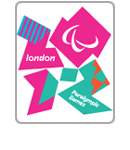
 Facebook
Facebook
 Instagram
Instagram
 Twitter
Twitter
 Youtube
Youtube
 TikTok
TikTok
 Newsletter Subscribe
Newsletter Subscribe

